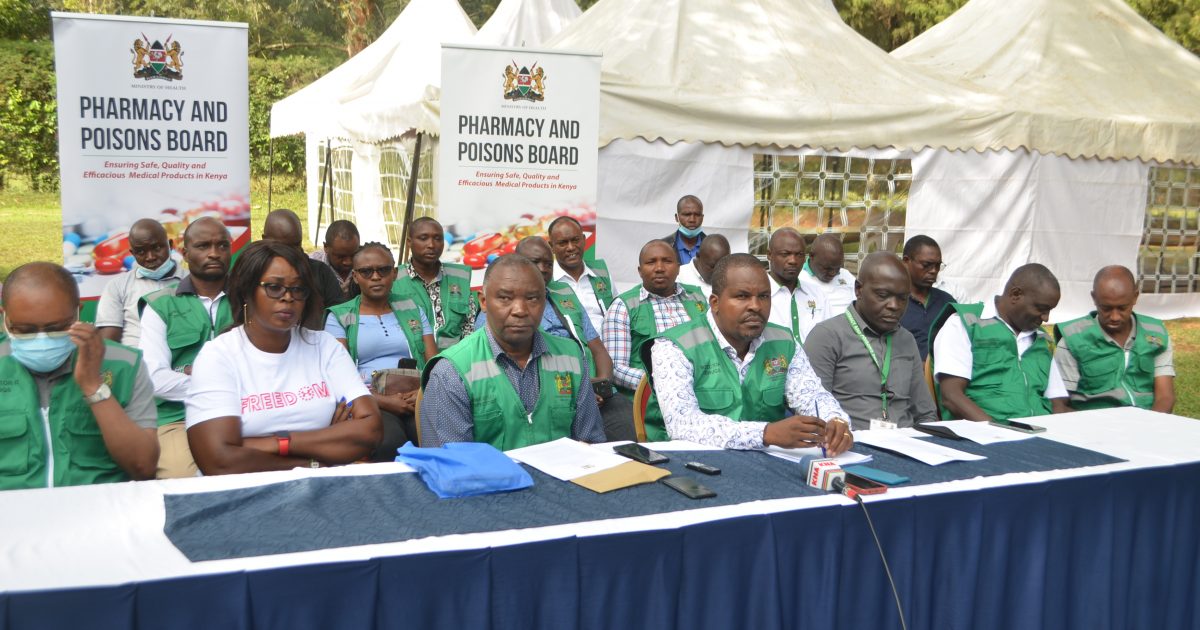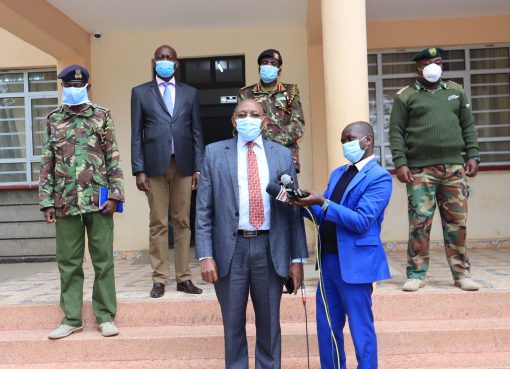Wholesalers dealing in pharmaceuticals have been warned against selling medicines to unregistered and unlicensed pharmacies in the country.
The Pharmacy and Poisons Board Coordinator for Good Distribution Practices Julius Kaluai, issued the warning as the board intensifies crackdown on proliferation of unregistered pharmacies in the country.
“Essentially you cannot use other people to commit a crime while you are comfortable somewhere,” he warned.
Kaluai said that despite the fact that the board continued to conduct a wholesale audit, some notorious people were still engaging in the unlawful practice putting the lives of Kenyans at risk.
“If these people will be denied medicines because of lack of licenses or are not registered then the problem we are dealing with will end. We have sampled a few wholesalers within this region and we are going to deal with them firmly,” he pointed out.
Kaluai was speaking after leading the board on a one-week crackdown on unlicensed outlets who defied closure notices despite being given a window period to regularize or close their premises.
The crackdown which was conducted simultaneously in Nairobi and Western Kenya led to the arrest of 58 people who despite warnings, defied closure notices.
The board had issued 136 closure notices in Western Kenya and 54 in Nairobi which they were following up on during the inspection by a multi-agency team. Out of the 58, 40 people were from Western Kenya and 18 from Nairobi were found not to have complied and nabbed. He said those who were arrested have been taken to court awaiting judgement.
The inspectors collected 134 cartons of assorted medicines from the outlets of an estimated value of Sh5.8million, which would be presented to court as exhibits and the court’s order on what to do with the commodities which were considered fit but were in the wrong hands.
“We have also established that most of those whom we issued closure notices to had changed their business patterns which is a plus to the board,” he added.
Kaluai said the efforts of the Poisons Board have got a boost after the Judiciary, through continuous sensitization, realized the public health impact of unregistered outlets and increased fines imposed on the culprits to deter them from continuing with the businesses.
“These fines are good because this time we have not heard of any court imposing a fine of less than Sh60, 000 per charge and, most of them are charging more than Sh100, 000,” he pointed out.
He said most of the quacks would find themselves parting away with more than Sh300, 000 fines when slapped with three charges of unlawful possession of Part One Poison, operating an unregistered outlet and also doing the work of a pharmacist while not registered as one.
He said the board is optimistic to root out quacks even as the Ministry of Health plans to increase the number of inspectors in the field.
In addition, Kaluai warned against selling medicated creams in cosmetic shops. He said the medicated creams were supposed to be sold in pharmacies and dispensed by a medical doctor and specifically a dermatologist through a prescription.
He said the board would soon mount an intensive crackdown on cosmetic shops selling medicated creams. Medicated creams are regulated by the Board.
The Pharmacy and Poisons Board Western Regional Head Dr Onesmus Kilonzo, noted that during the crackdown, inspectors identified that some parents allowed their children to run pharmacies.
“I want to send a strong message to the parents that pharmacy is a practice before it becomes a business and the practitioner is very quintessential in a good practice, so let’s keep children and family members away from the practice area,” he noted.
For one to operate a pharmacy, they must be qualified either as a pharmaceutical technologist with a diploma or a Pharmacist with a Degree, otherwise they would be considered quacks risking lives of residents and would be liable for prosecution.
“Drugs are medicines only if they are in possession of a specialist otherwise it becomes poison if possessed by the unqualified people. It is poison until a specialist is involved for it to be considered medicine,” he added.
At the same time, the board notified all pharmacies that all licenses issued by the Pharmacies and Poisons Board expire on 31st of December every year.
The board has set a window period of renewal of the licenses from 1st of November of that particular year to 31st December when their current license is supposed to expire.
“By 1st of January of the following year, all pharmacies are supposed to have new licenses. So anybody who says they have a window period to renew their licenses after the 1st of January are lying,” added Kaluai.
By Moses Wekesa





